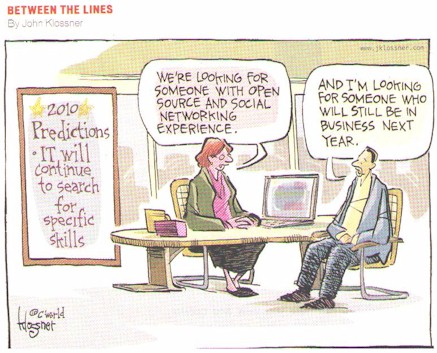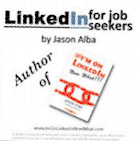When I first started publishing Ask The Headhunter online in 1995, the most popular and frustrating question I’d get from readers was, How can I write a really great resume that will get me an interview?
My answer was simple: Throw your resume in the garbage. Don’t use a resume. A resume is a crutch. A dumb piece of paper. It cannot defend you to a manager who finds something wrong with it (or missing from it). It will get you rejected before you have a chance to make your case for the job. While your resume is gathering dust on some manager’s desk, my candidate is negotiating a salary package with the hiring manager.
But people kept asking, so I figured that if I can’t provide a useful response to the question, I’m useless. So I wrote an article titled Resume Blasphemy to answer the question. Shortly thereafter I added another on the same topic: Put a Free Sample in Your Resume. The two articles describe what I refer to as The Working Resume™.
Since then, I’ve challenged people to submit their idea of a Working Resume — cautioning them not to bother me with traditional resumes, which I won’t bother reading. A few have submitted interesting efforts because they get the main idea. But only a few. Others beg me to publish the good ones, but I won’t. Why should I give away one person’s insights to competitors? Besides, if I give you a template, you’ll just use it rather than figure it out for yourself. And figuring it out is 100% of the challenge.
Recently a longtime reader, Phil Hey (The Writing Coach at Briar Cliff College, Sioux City, Iowa — Thanks, Phil!) sent me an excellent example of The Working Resume that’s in the public domain. It meets the criteria I set forth in my articles — and it got the writer the job he was seeking.
Frankly, this resume kicks ass because it observes the #1 rule for a truly blasphemous resume: It should say nothing about you. It should be entirely about the work the employer needs to have done.
The killer part of the resume is at the very end. The job applicant volunteers to show up at the employer’s place — and do the job to win the job. He says he’ll prove himself.
You don’t have to be Leonardo DaVinci to produce your own Working Resume. But you’ve gotta be damned good and ready to prove it. If you’re not, you don’t deserve to be hired, do you?
Here’s Leonardo DaVinci’s letter to Ludovico Sforza, the Duke of Milan, applying for a job in 1481 :
Having, most illustrious lord, seen and considered the experiments of all those who pose as masters in the art of inventing instruments of war, and finding that their inventions differ in no way from those in common use, I am emboldened, without prejudice to anyone, to solicit an appointment of acquainting your Excellency with certain of my secrets.
1. I can construct bridges which are very light and strong and very portable, with which to pursue and defeat the enemy; and others more solid, which resist fire or assault, yet are easily removed and placed in position; and I can also burn and destroy those of the enemy.
2. In case of a siege I can cut off water from the trenches and make pontoons and scaling ladders and other similar contrivances.
3. If by reason of the elevation or the strength of its position a place cannot be bombarded, I can demolish every fortress if its foundations have not been set on stone.
4. I can also make a kind of cannon which is light and easy of transport, with which to hurl small stones like hail, and of which the smoke causes great terror to the enemy, so that they suffer heavy loss and confusion.
5. I can noiselessly construct to any prescribed point subterranean passages either straight or winding, passing if necessary underneath trenches or a river.
6. I can make armoured wagons carrying artillery, which shall break through the most serried ranks of the enemy, and so open a safe passage for his infantry.
7. If occasion should arise, I can construct cannon and mortars and light ordnance in shape both ornamental and useful and different from those in common use.
8. When it is impossible to use cannon I can supply in their stead catapults, mangonels, trabocchi, and other instruments of admirable efficiency not in general use — In short, as the occasion requires I can supply infinite means of attack and defense.
9. And if the fight should take place upon the sea I can construct many engines most suitable either for attack or defense and ships which can resist the fire of the heaviest cannon, and powders or weapons.
10. In time of peace, I believe that I can give you as complete satisfaction as anyone else in the construction of buildings both public and private, and in conducting water from one place to another.
I can further execute sculpture in marble, bronze or clay, also in painting I can do as much as anyone else, whoever he may be.
Moreover, I would undertake the commission of the bronze horse, which shall endue with immortal glory and eternal honour the auspicious memory of your father and of the illustrious house of Sforza.
And if any of the aforesaid things should seem to anyone impossible or impracticable, I offer myself as ready to make trial of them in your park or in whatever place shall please your Excellency, to whom I commend myself with all possible humility.
Leonardo Da Vinci
Now, who gives a rat’s ass what the job applicant’s credentials and experiece are, where he went to school, what grades he got, what skills he has, who else he has worked for, what titles he has had, and what his prior accomplishments are — when the applicant says he can do all the things you need him to do and is willing to show up and prove it? That’s a Working Resume.
(Republished from Yurica Report. If you need The Writing Coach, Phil Hey, contact him at Phil.Hey@briarcliff.edu)


 In fact, there’s not even a headhunting firm listed. Just directories, job listings, and sometimes a big job board like CareerBuilder. (Since when is CareerBuilder a headhunting firm?)
In fact, there’s not even a headhunting firm listed. Just directories, job listings, and sometimes a big job board like CareerBuilder. (Since when is CareerBuilder a headhunting firm?) And that’s kept me doing this for almost 15 years: the fact that you get it. And there’s no question that I’m tickled to be the only headhunter in Google’s top 10. I’m very grateful that lots of other highly-ranked websites link to Ask The Headhunter. I just had to crow.
And that’s kept me doing this for almost 15 years: the fact that you get it. And there’s no question that I’m tickled to be the only headhunter in Google’s top 10. I’m very grateful that lots of other highly-ranked websites link to Ask The Headhunter. I just had to crow.